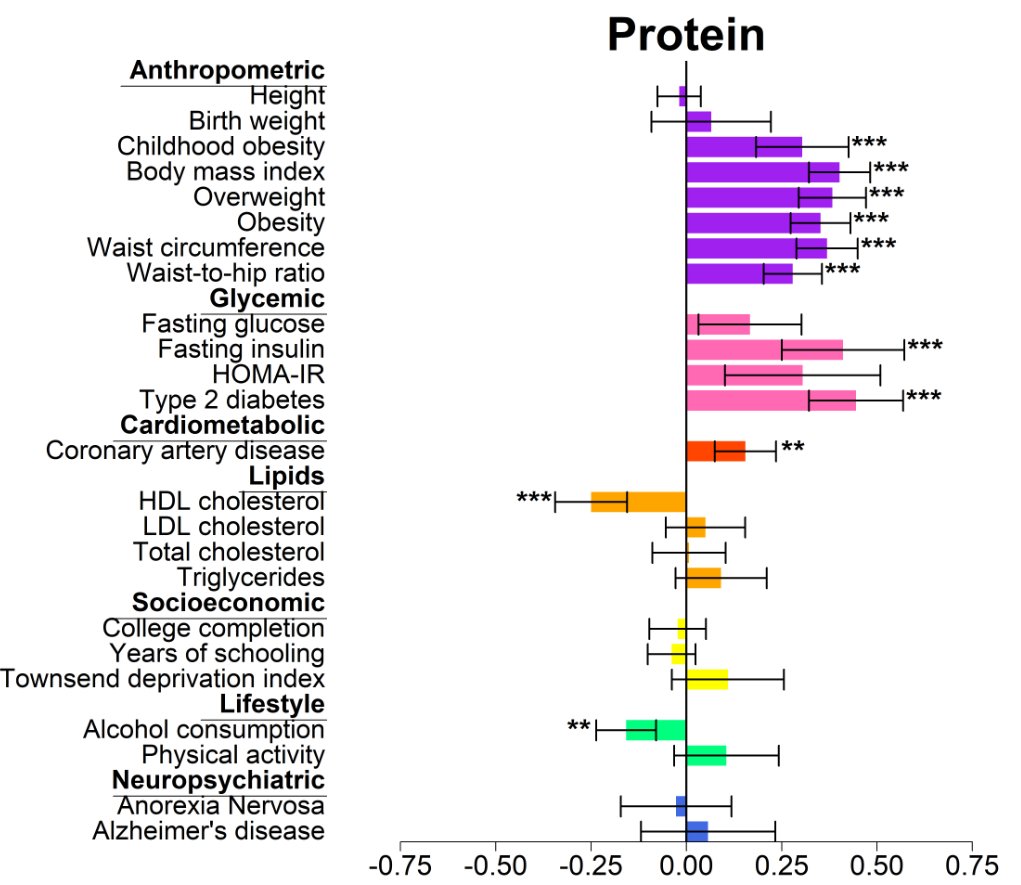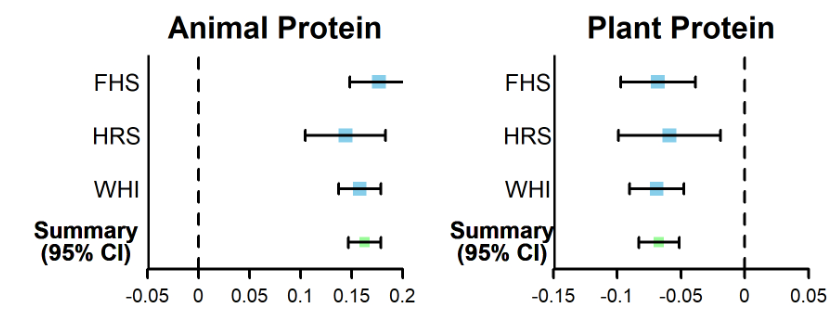GWAS of dietary intake: A thread to help interpret our results. All technical details are exhaustively described in our Supplement! https://www.nature.com/articles/s41380-020-0697-5">https://www.nature.com/articles/... /1
We studied *relative* intake of carbs, fat, protein, and sugar (“diet composition”) rather than total intakes. Why? Total intake is a function of height, weight, age, sex, physical activity. A GWAS of total intakes would just find a mix of those things. /2
We also know that total energy intake from self-reports is not a good indication of what people actually eat: there is massive underreporting. This is especially true for overweight people… a huge methodological issue. /3
There is mixed evidence for misreporting of the dietary components. Protein intake may be *over*reported, but the one paper that corrected for this found that the association with fat mass gain remained the same (Ankarfeldt et al 2015) /4
There is no scientific consensus on which macronutrient to restrict (or boost): huge, long-run observational studies find different effects than small, short-run experimental studies that put people on extreme (undoable?) diets. /5
And we all know we were told not to eat too much fat, only for that advice to be withdrawn (“the dietary source matters more”), with a new focus (and conspiracy theories?) on sugar being the worst for health. /6
So we did GWAS for the macronutrients fat, protein, carbs, sugar. We didn’t just do % intake, as we found the macronutrients to not scale linearly with total energy intake (high energy diets consist of more of fat and less of protein.) /7
Biologically, we found metabolism/digestion functions for the top loci, but a strong brain function (and not much else) for the overall genetic signature. Our interpretation: the brain directs macronutrient intake, but incorporates signals from the body. /8
Relative protein intake had a clear pattern of genetic associations with poor health (obesity, diabetes, CVD). We found no such pattern for the other macronutrients. /9
It should come as no surprise that this is phenotypically driven by animal protein. (Our sample was too small for an animal protein GWAS.) Somehow, people who eat a lot of animal protein just tend to be fatter. /9
Is this causal? We don’t know, we didn’t do MR. We were borderline underpowered for MR, and many of the loci are health loci, complicating things. We’re not planning to do MR, but I’d happily support anyone who would like to with our data. /10
It was extremely difficult to find underlying mechanisms in the literature. I think this idea is so bewildering to researchers that they’d rather flip the storyline: low carb/fat is the bad, rather than high protein. I know more than one example of this. /11
I did find several great studies that validated the human protein-obesity link with animal experiments, and I also found that it is well established that high-protein baby formula makes babies fat. Which is a great experiment: babies can’t lie about what they eat. /12
My advice? Probably Michael Pollan’s “Eat food, not too much, mostly plants.” (But personal disclaimer: I’m a vegetarian ;-) ). Despite our results, don’t overdo it on the refined sugars, but also don’t worry too much about them - unless they make you eat more than you need! /end

 Read on Twitter
Read on Twitter



